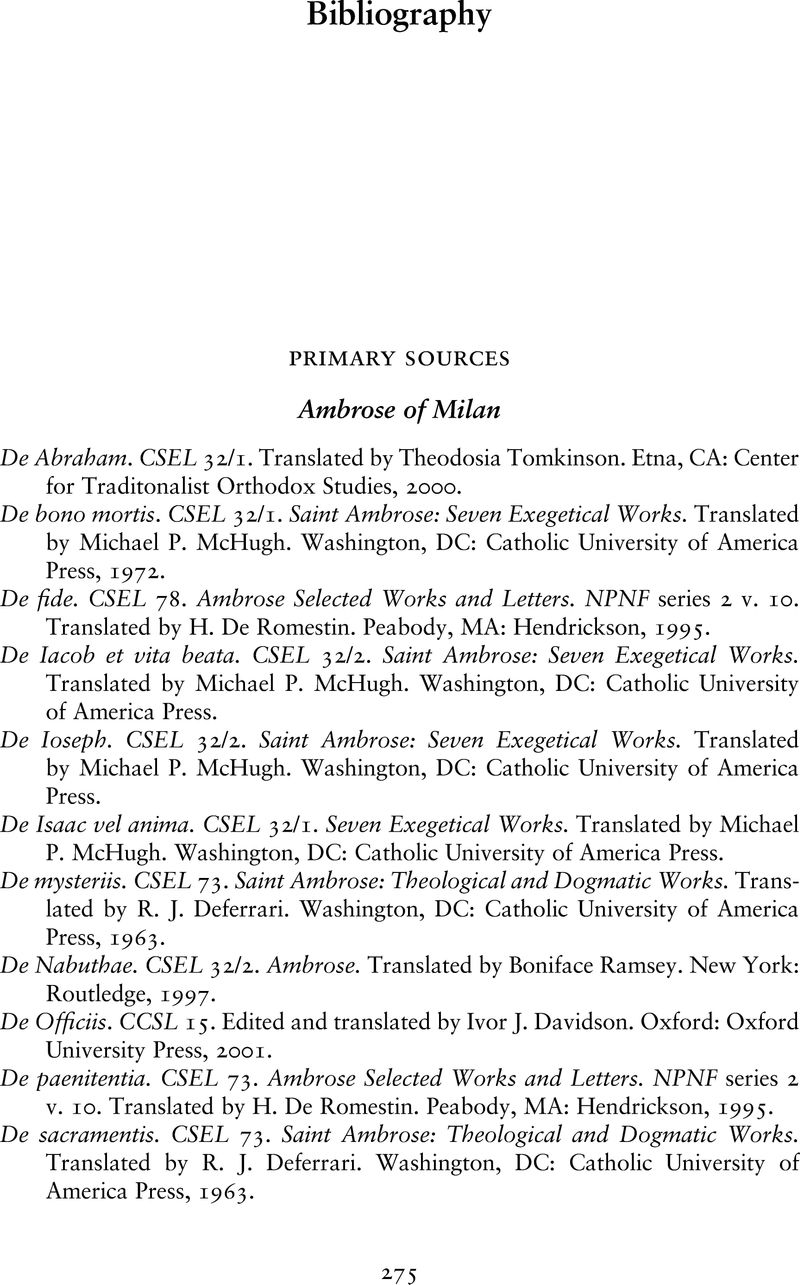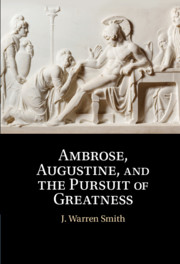Book contents
- Ambrose, Augustine, and the Pursuit of Greatness
- Ambrose, Augustine, and the Pursuit of Greatness
- Copyright page
- Dedication
- Contents
- Acknowledgments
- Abbreviations
- Introduction
- Part I The Problem of Greatness and the Great-Souled Man from Plato to Plutarch
- Part II Ambrose’s Great-Souled Christians
- Part III Augustine and the Magnus Animus
- Epilogue
- Bibliography
- Index
- References
Bibliography
Published online by Cambridge University Press: 24 November 2020
- Ambrose, Augustine, and the Pursuit of Greatness
- Ambrose, Augustine, and the Pursuit of Greatness
- Copyright page
- Dedication
- Contents
- Acknowledgments
- Abbreviations
- Introduction
- Part I The Problem of Greatness and the Great-Souled Man from Plato to Plutarch
- Part II Ambrose’s Great-Souled Christians
- Part III Augustine and the Magnus Animus
- Epilogue
- Bibliography
- Index
- References
Summary

- Type
- Chapter
- Information
- Ambrose, Augustine, and the Pursuit of Greatness , pp. 275 - 286Publisher: Cambridge University PressPrint publication year: 2020



